'The dawn of a new world and a different way of life' - VE Day recollections from those who lived through it
This article contains affiliate links. We may earn a small commission on items purchased through this article, but that does not affect our editorial judgement.
There were stories of loss and suffering, stories of courage and community, and, amongst all the darkness, there were stories of relief and of hope.
Today, we share some of those stories, as those who lived through the historic end to the Second World War 75 years ago look back on their VE Day memories from May 8, 1945.
Advertisement
Hide AdAdvertisement
Hide Ad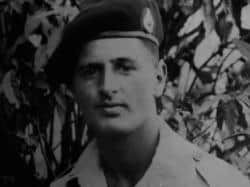

Iby Knill, who lives in Chapel Allerton, Leeds, was 21 at the time. She grew up in Czechoslovakia with a Protestant father and Jewish mother and escaped to Hungary in 1942 as the Nazi persecution of Jews accelerated.
Following a period in hiding she was captured and taken to the Auschwitz-Birkenau concentration camp and then to Lippstadt where she was one of 850 women working in an armaments factory.
As the Allies advanced, the factory was closed and Iby was among those being marched to Bergen Belsen when she was liberated by American troops on April 1, 1945. “I spent a fortnight in hospital and then went to work for the British as a translator because I spoke seven languages,” she says.
For Iby, now 96, the end of the war in Europe brought mixed emotions. “I remember VE Day. It was my father’s birthday [he had been killed in the gas chambers at Auschwitz]. I was in Bruen, in Westphalia, working for the British Military Government when we heard the news.
Advertisement
Hide AdAdvertisement
Hide Ad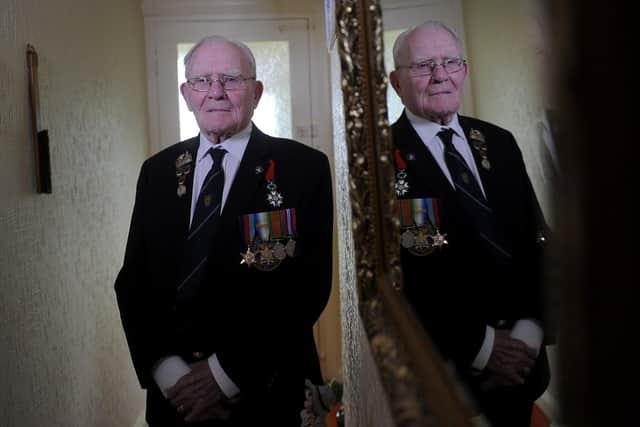

“It felt very unreal because so much had happened, the world had changed so much, but we did celebrate and it was a very boozy occasion, as you can imagine.
“We never thought, deep down, that the Germans would win, that was the hope that kept us alive. So in the end the feeling was one of elation, there’s no other word for it.”
Frank Baugh
Frank Baugh, then 21, was serving in the Royal Navy at the time, as a signalman on board a landing craft.
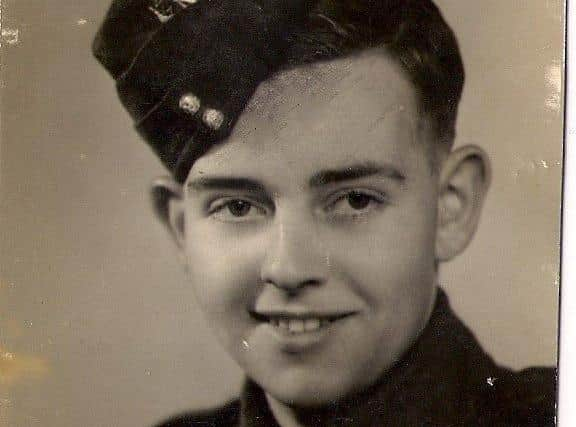

After taking part in the D-Day invasion of 1944, his flotilla made trip after trip, transporting troops from Britain to the continent to join the battle and carrying back prisoners of war and soldiers returning home.
Advertisement
Hide AdAdvertisement
Hide AdThey were leaving Ostend in Belgium, destined for the Essex town of Tilbury when they discovered that Nazi Germany had surrendered.
The atmosphere among those on board was one of euphoria, Frank says.
“We lived from day to day all the time and so you didn’t know whether you would come back. Relief is a poor word for it. It was unbelievable really, you can’t explain it to people... To think that it was over and when you went to bed, you could sleep and know you could get up the next morning, was terrific. We couldn’t get over it.”
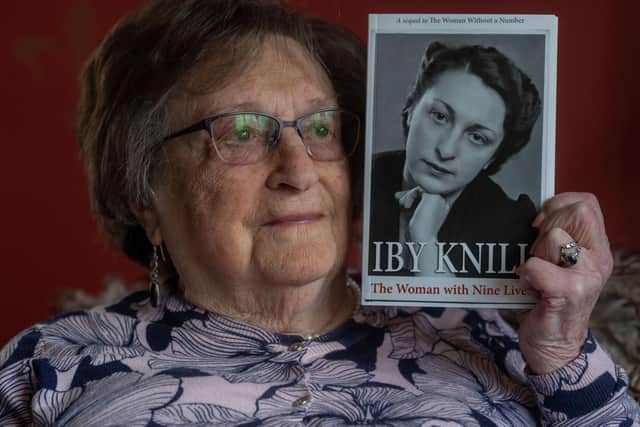

Frank, originally from Hemsworth but now living in Doncaster, recalls singing, shouting and backslapping on the joyous journey.
Advertisement
Hide AdAdvertisement
Hide AdOne of the gunners on board was so enthusiastic that he fired a burst straight up in the air in celebration.
“A Lancaster bomber was going over at the time. Luckily, he did a quick swerve to get out of the way.”
When they returned to the UK, Frank, now 96, and his comrades were given a day’s leave for Victory in Europe celebrations the following day.
“Four of us who used to go about together set off to walk it into London,” he recalls with a chuckle. “Being naive youngsters like we were, we thought we were very close to London and thought we’re going to have a penneth of this, it will be great. It was a terrific feeling that the war had finished.”
Advertisement
Hide AdAdvertisement
Hide AdThe group covered some distance before realising the error of their ways and aborting the plan.
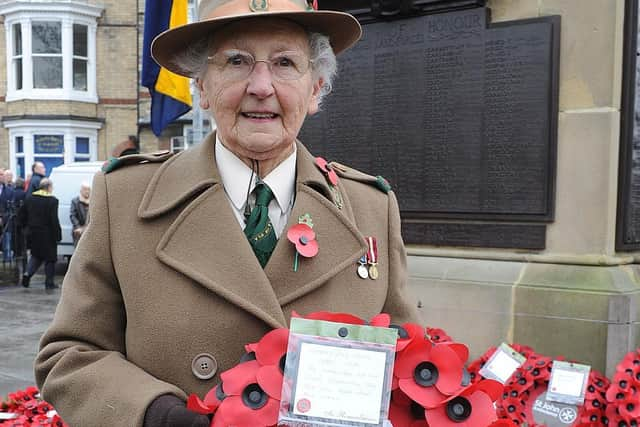

“We happened just by chance to be going past a very nice public house and there was music and singing coming from inside. We thought we’ll have some of that so we decided to go there and that would do us.
“Being four young lads in the navy, they made a real fuss of us and we had a real cracking time in there.”
As midnight drew closer, a local couple invited the men to stay with them for the night.
Advertisement
Hide AdAdvertisement
Hide Ad“We went to a big department store. They opened the doors into it and we walked straight in, took a lift at the far end and went to an apartment on the roof. It turns out they were the caretakers. It was a lovely place, we had a good night’s sleep and were cooked a lovely breakfast.”
The men were then driven back to Tilbury in the department store’s delivery van, another touching gesture of kindness that Frank has never forgotten.
“The people were really unbelievable. We had never spoken to them and yet they took us in. We said to them it’s a bit much to take four of us and they said they had a son in the airforce and hoped somebody had done the same with him. They were thinking of their own lad.”
Trude Silman
For Trude Silman, then a 16-year-old girl, VE Day was a time of mixed emotions. Trude, who lives in Leeds, was born into a Jewish family in Czechoslovakia and had fled to England at the age of nine, leaving behind her parents to escape Nazi persecution.
Advertisement
Hide AdAdvertisement
Hide AdWhen war broke out, she was evacuated to the countryside and spent most of the conflict years in Cornwall. But by the time of VE Day, she was studying in Surrey.
On that particular week, Trude had gone to visit a pen friend, who was living in London.
The pair, joined by one of her friend’s cousins, spent the day around Piccadilly Circus.
“I remember all these people milling around and everybody being cheerful,” she says. “It was a warm-ish day and it was very crowded.”
Advertisement
Hide AdAdvertisement
Hide AdFor Trude, the celebrations were tinged with sadness. “It was the end of the war but as far as I was concerned, I was still without my parents...It was quite a while later that I discovered my father had been killed in Auschwitz. After looking for many, many years, I have never found my mother.”
The day itself also ended on a sour note for Trude and her friend. “Where my friend was living, they had a dog and when we got back to the house we couldn’t understand when we came to the door why he wasn’t barking like he normally did.
“We went inside and we realised we had had burglars and the poor dog had died because they’d given him poisoned meat. It wasn’t a very nice ending to our day of celebrating the end of the war, coming home to a burgled house.”
John ‘Jack’ Rushton
Although Doncaster-born John Rushton, known as Jack, was pleased that the war in Europe was over, for him, there was little opportunity to celebrate as he continued his war service with The Royal Marines.
Advertisement
Hide AdAdvertisement
Hide AdNow 95 and living in Harrogate, Jack had joined the Home Guard at the outbreak of the Second World War, then too young to enlist. After his 18th birthday, he volunteered for war service and was accepted into the Marines, specialising in artillery.
Aged 20, Jack was involved in the D-Day landings, sent to Normandy in place of a comrade who had been taken ill.
The following year, he was sent out to India. Son Dave picks up the story after speaking to his father about his VE Day memories:
“On arrival in Bombay his unit was tasked with keeping the peace during the country’s internal struggles, and training to join the war against Japan further east,” Dave explains.
Advertisement
Hide AdAdvertisement
Hide Ad“This preoccupied them from any celebrations on VE Day, although the news did reach them.
“His unit was due to be sent to Malaysia to await deployment to the battle front. However when the atomic bombs were dropped, they were spared the ordeal of the next fight.
“At this point they took full advantage of an opportunity to celebrate, including a raidon the NAAFI to liberate the necessary supplies of drink.
“Although the war was now over, his unit was sent back to India to help quell a naval mutiny, and as a result, he didn’t make it home until 1946, when he was demobbed.”
Ken Cooke
Advertisement
Hide AdAdvertisement
Hide AdA 19-year-old Ken Cooke spent VE Day convalescing in hospital, traumatised by what he had lived through during his time with the British Army.
Ken’s call up papers had arrived at the end of 1943. As an infantryman with the Green Howards, he had then taken part in the D-Day invasion but was sent back to Britain to recuperate after being badly wounded by shrapnel within a month of landing.
He later rejoined British troops on the continent, this time with the Highland Light Infantry, with whom he took part in battle just outside the German town of Bremen.
His war finished there in 1945 when he was sent back home with shell shock, today known as Post Traumatic Stress Disorder.
Advertisement
Hide AdAdvertisement
Hide AdKen, one of the last surviving York Normandy Veterans, later found out that Nazi Germany had surrendered when listening to the radio in hospital.
“I was in hospital down south somewhere, I don’t know where it was,” he recalls of VE Day. “I had just come back from Germany with shell shock. I heard a lot of celebrating. I did a little bit of celebrating in the hospital bed with the other people.”
Dorothy Taylor
A member of the Women’s Land Army, supporting agriculture and food production during the Second World War, Dorothy Taylor was working on a dairy farm in Gosmore, Hertfordshire when the conflict in Europe came to an end.
Now 92 and living in Bridlington, Dorothy remembers visiting a local pub for a party on VE Day evening.
Advertisement
Hide AdAdvertisement
Hide Ad“I think every customer that came in was on my milk round and they all bought me a drink. I had about 16 glasses in front of me,” she recalls.
“My sister was on another farm in St Ippolyts and she had some friends with her. We all had a table to sit around and the owner of the pub brought out all sorts of things to make it a proper party.
“I remember going back to go to bed because I’d still to be up at half past five and I couldn’t see straight. I’d never had a drink before and I don’t think I’ve had one since!”
Dorothy, who was born in a village in Doncaster, was 18 at the time and says the mood was buoyant.
Advertisement
Hide AdAdvertisement
Hide Ad“People were dancing in the street. Everybody was so happy that that day had come. There were people whose husbands were away and they just couldn’t believe that he would be coming home.”
Maurice Sadler
Serving with The Royal Marines, Maurice Sadler was 20 at the time of VE Day and was stationed at HMS Robertson, a holding barracks for landing craft personnel.
He had been posted to the Kent base four months after playing a vital role in the D-Day invasion and the operations that followed, as a gunner responsible for taking out German snipers and machine gun positions.
Maurice, now 95 and living in Scarborough, says nearby were several bases for other forces - including a Wrens site where his now-wife Mary was posted with the Women’s Royal Naval Service - and he and his comrades were not allowed to leave their camp for the VE Day celebrations.
Advertisement
Hide AdAdvertisement
Hide Ad“I was designated to be corporal of the guard for 24 hours. The colonel had decided that there would be a lot of personnel wanting to celebrate, especially down in the village - we were about a mile just outside Sandwich in Kent - and decided he wouldn’t let anyone go ashore at all that night so we were all camped down for 24 hours. Unfortunately, one or two of the lads got a bit boisterous and started lighting bonfires. I had to call the guard out to stop them from burning the place down.”
The mood, he says, was “very, very joyful”.
“Everyone was pleased that the war was over. Some of us had had a rough time.
“They wanted to let their hair down but the Colonel was a bit worried...he didn’t want us to clash in the village, getting too boisterous and fighting so he decided he would clamp the camp down for 24 hours and he didn’t allow anyone to leave or come in at all.”
The next day, Maurice recalls heading into the village for a party. “There was singing and dancing in the square. We always used to go to the same pub. We had a few drinks and a dance.
Advertisement
Hide AdAdvertisement
Hide Ad“We were pretty pleased it (the war in Europe) was over and that we had come out of it. Very unfortunately some didn’t come out of it. We lost a lot of good blokes. I lost my own brother. He was in the marines as well.”
Sir Bill O’Brien
Former MP Sir Bill O’Brien was a 16-year-old boy working at Glasshoughton pit on VE Day.
“The colliery management switched on lights around the colliery surface making the place aglow,” he says. “The letters VE, ten feet high illuminated by light bulbs, were secured to a wooden structure and placed on the pit shaft head-gear that was visible for miles. It was a very proud occasion in a mining community.”
Sir Bill, who was MP for Normanton, Wakefield between 1983 and 2005, recalls that people crowded around a radio in the street to listen to the news and said some were shedding tears of joy, whilst pit families gathered to celebrate the victory.
Advertisement
Hide AdAdvertisement
Hide Ad“Days that followed were days of celebration and thanksgiving,” he says. “There were street parties with tables and chairs loaned from the working men's club, women baking bread and cakes although food rationing was inbeing. Everyone enjoyed a meal of jacket potatoes, roast taties, and meat from pigs reared locally and killed under licence and shared in the community.
“I was a very proud young person having been employed at the pit for a year, leaving school at 15. I was feeling free to consider a career in mining which came true, as I served as a local NUM official, representing mining communities in local government and Parliament. Tuesday, May 8, 1945 was the dawn of a new world and a different way of life.”
Sid Metcalfe
Sid Metcalfe, another of York’s last surviving Normandy veterans, was back home in the city ahead of VE Day.
The now 97-year-old had joined the army at the age of 20, serving with the Reconnaissance Corps and landing on Sword Beach about 10 days after D-Day as part of the Normandy invasion.
Advertisement
Hide AdAdvertisement
Hide AdHis corps was charged with gathering vital tactical information from the opposition and passing messages on to advancing troops.
On one mission in October 1944, Sid and several of his comrades were ambushed by German forces and captured as prisoners of war.
He ended up being taken to work in a copper mine but was left with a fractured spine and broken ribs after a rock fall.
When American troops liberated the camp, Sid was convalescing in its hospital. He returned to the UK in 1945 but was spending many of his days travelling to Leeds from his home in York for further treatment on his back.
Advertisement
Hide AdAdvertisement
Hide AdRecalling VE Day, he said people “went wild with joy”, throwing parties in the street.
“Everybody was happy. But York was licking its wounds as it had been bombed,” he says. “Still, everybody went wild with happiness. I remember Churchill’s speech and what a relief it seemed to be. But all my troubles weren’t finished and I was still going to Leeds for treatment on my back. It affects me right to this day, it still hurts.”
For more stories from the YP Magazine and The Yorkshire Post features team, visit our Facebook page.
Editor’s note: first and foremost - and rarely have I written down these words with more sincerity - I hope this finds you well.
Advertisement
Hide AdAdvertisement
Hide AdAlmost certainly you are here because you value the quality and the integrity of the journalism produced by The Yorkshire Post’s journalists - almost all of which live alongside you in Yorkshire, spending the wages they earn with Yorkshire businesses - who last year took this title to the industry watchdog’s Most Trusted Newspaper in Britain accolade.
And that is why I must make an urgent request of you: as advertising revenue declines, your support becomes evermore crucial to the maintenance of the journalistic standards expected of The Yorkshire Post. If you can, safely, please buy a paper or take up a subscription. We want to continue to make you proud of Yorkshire’s National Newspaper but we are going to need your help.
Postal subscription copies can be ordered by calling 0330 4030066 or by emailing [email protected]. Vouchers, to be exchanged at retail sales outlets - our newsagents need you, too - can be subscribed to by contacting subscriptions on 0330 1235950 or by visiting www.localsubsplus.co.uk where you should select The Yorkshire Post from the list of titles available.
If you want to help right now, download our tablet app from the App / Play Stores. Every contribution you make helps to provide this county with the best regional journalism in the country.
Sincerely. Thank you.
James Mitchinson
Editor